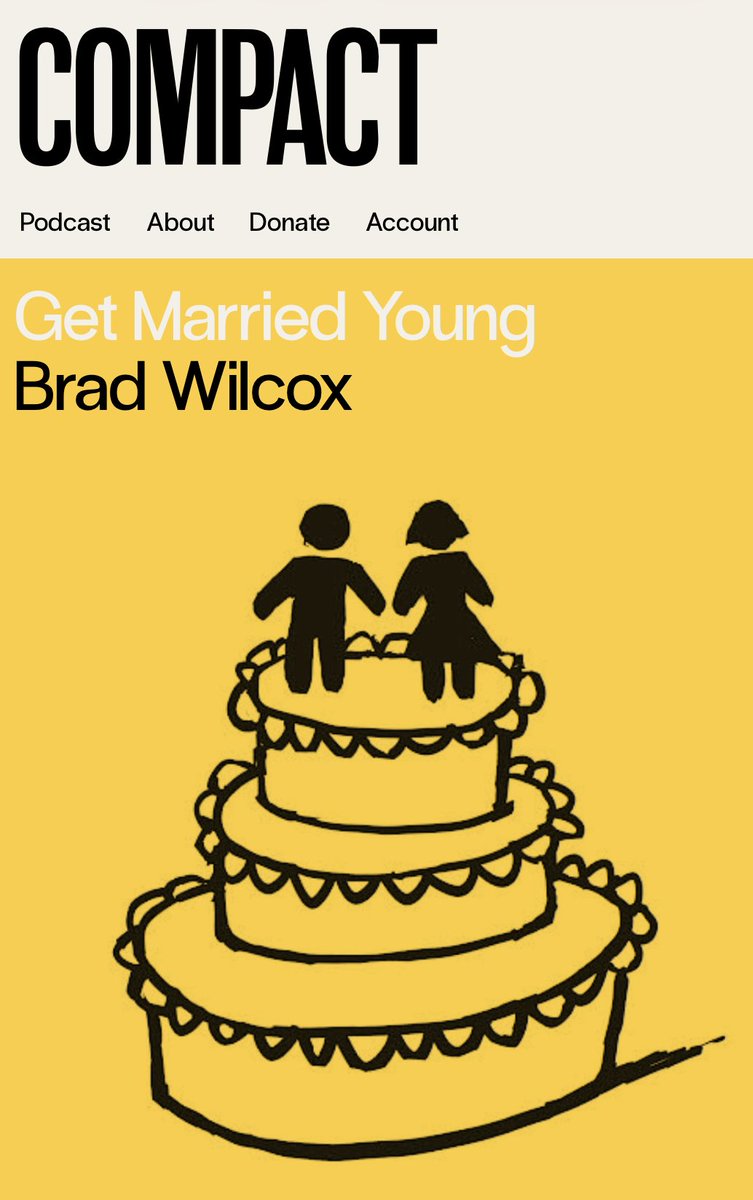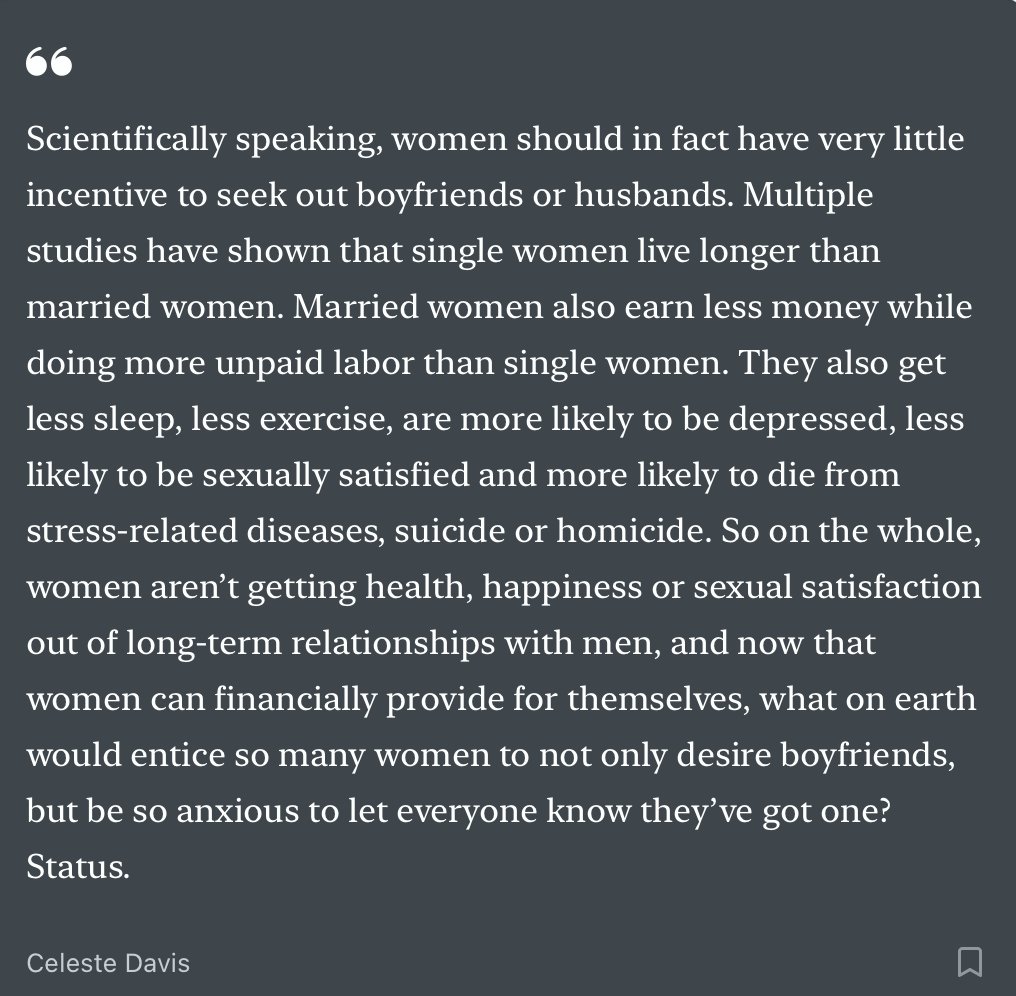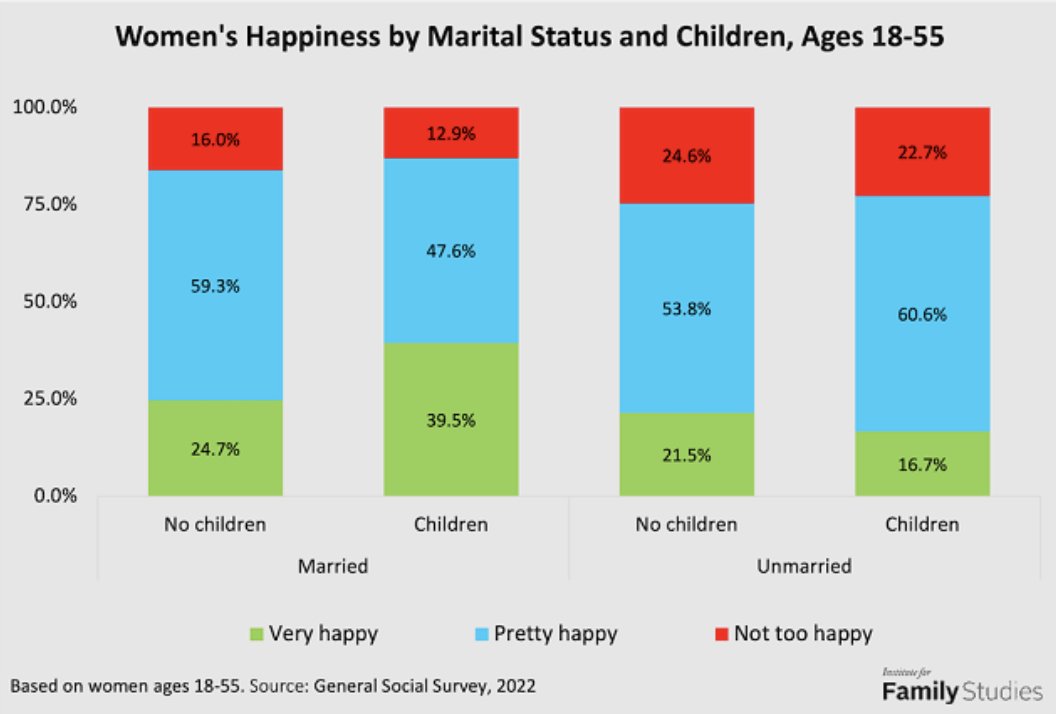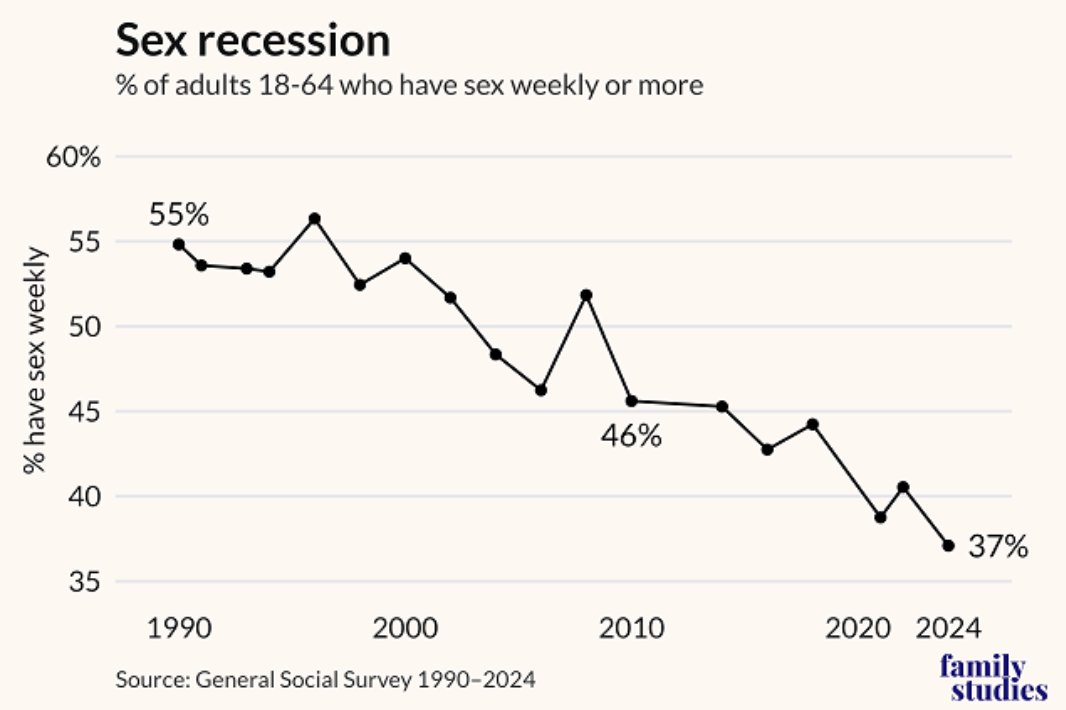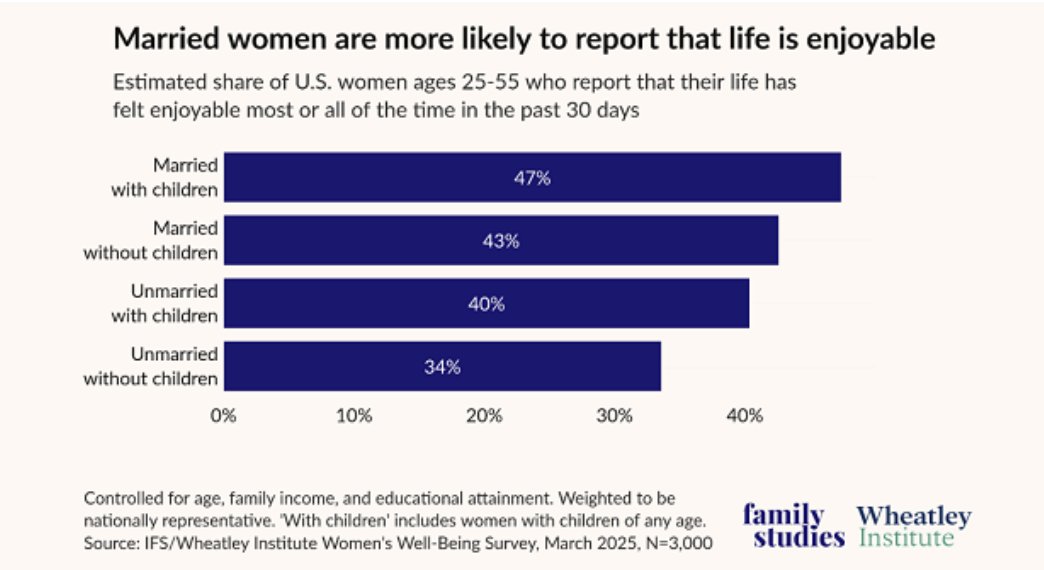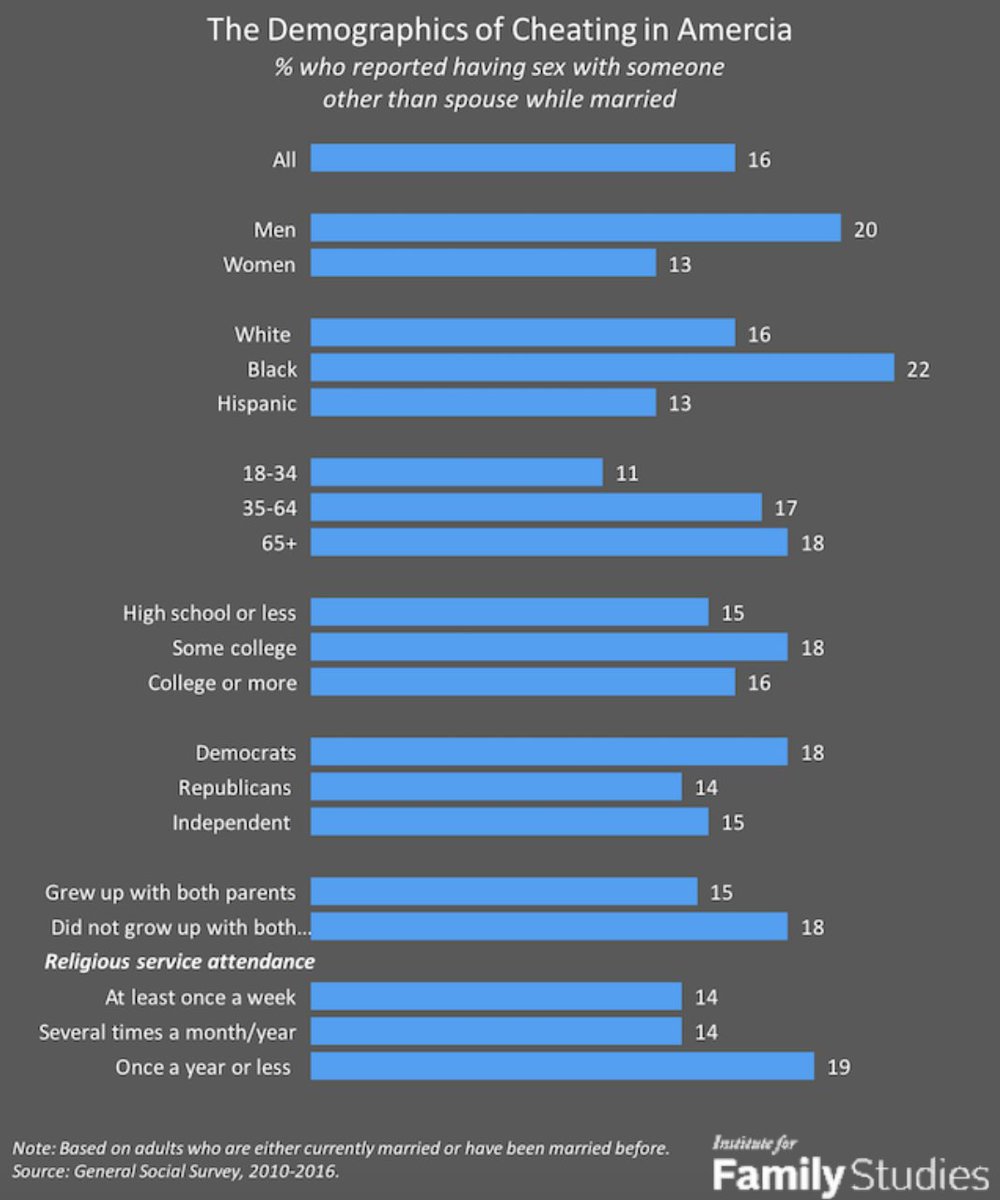If "conservative forms of fatherhood were obviously toxic relative to the Walzian glories of liberal dadhood, you would presumably expect to see those effects made manifest among children," @DouthatNYT. But the data pt in a different direction:






As @JonHaidt has noted, it's progressive young women whose mental health has tanked the most in recent years: afterbabel.com/p/mental-healt…
@JonHaidt And as @jtrothwell @BrookingsInst has found, “Conservative parents are the most likely to adopt the parenting practices associated with adolescent mental health”, which is “warm, responsive, *and* rule-bound, disciplined parenting.” ifstudies.org/blog/parenting…
@DouthatNYT on the rhetoric VS reality of masculinity in American families: nytimes.com/2024/08/17/opi…
• • •
Missing some Tweet in this thread? You can try to
force a refresh


